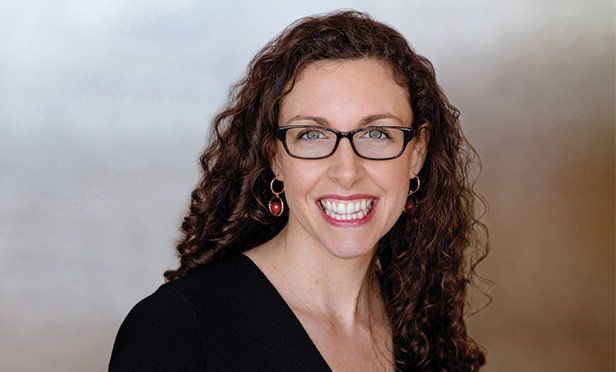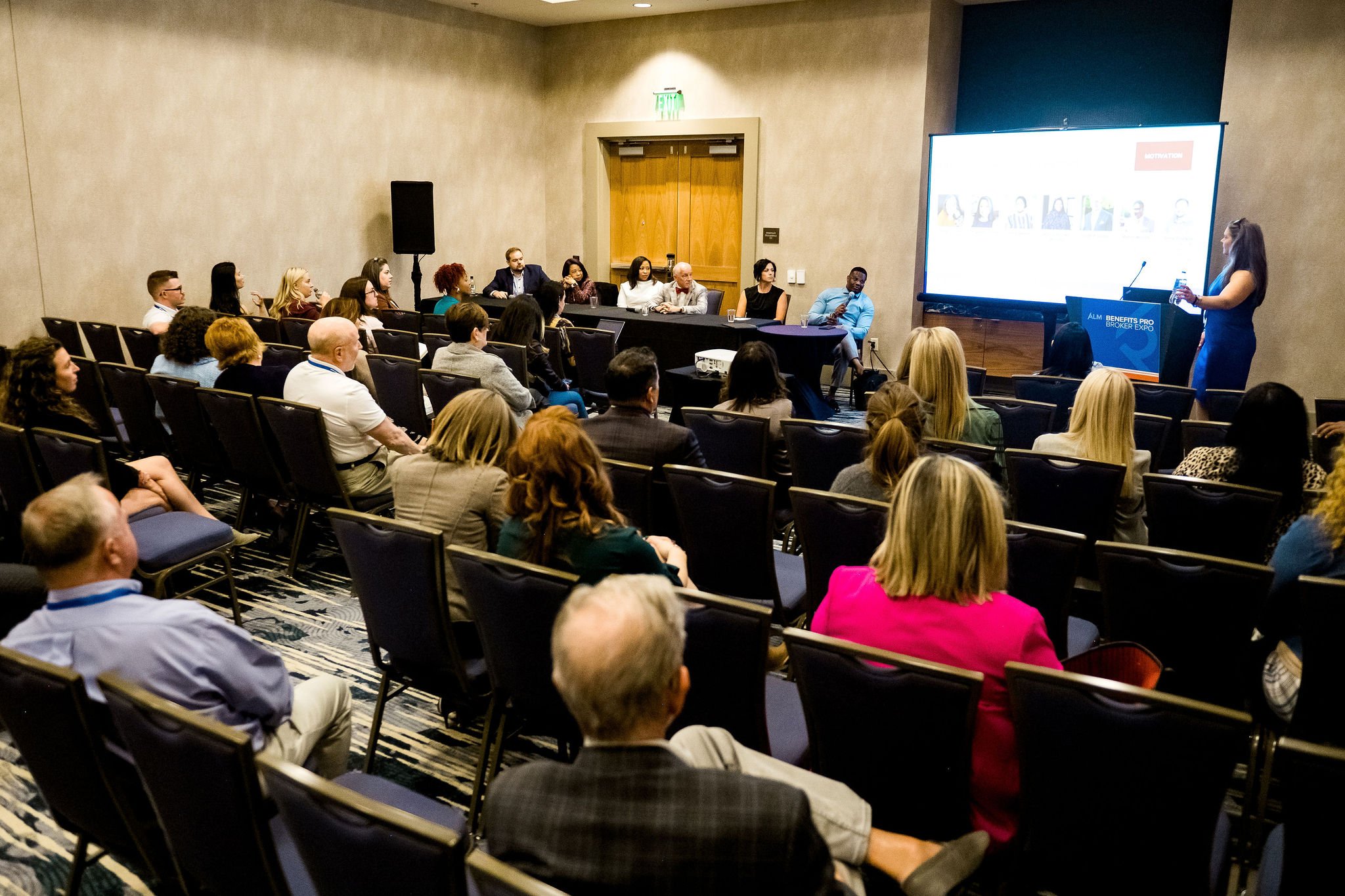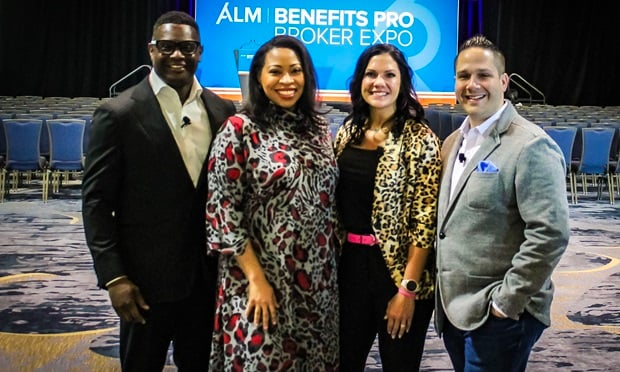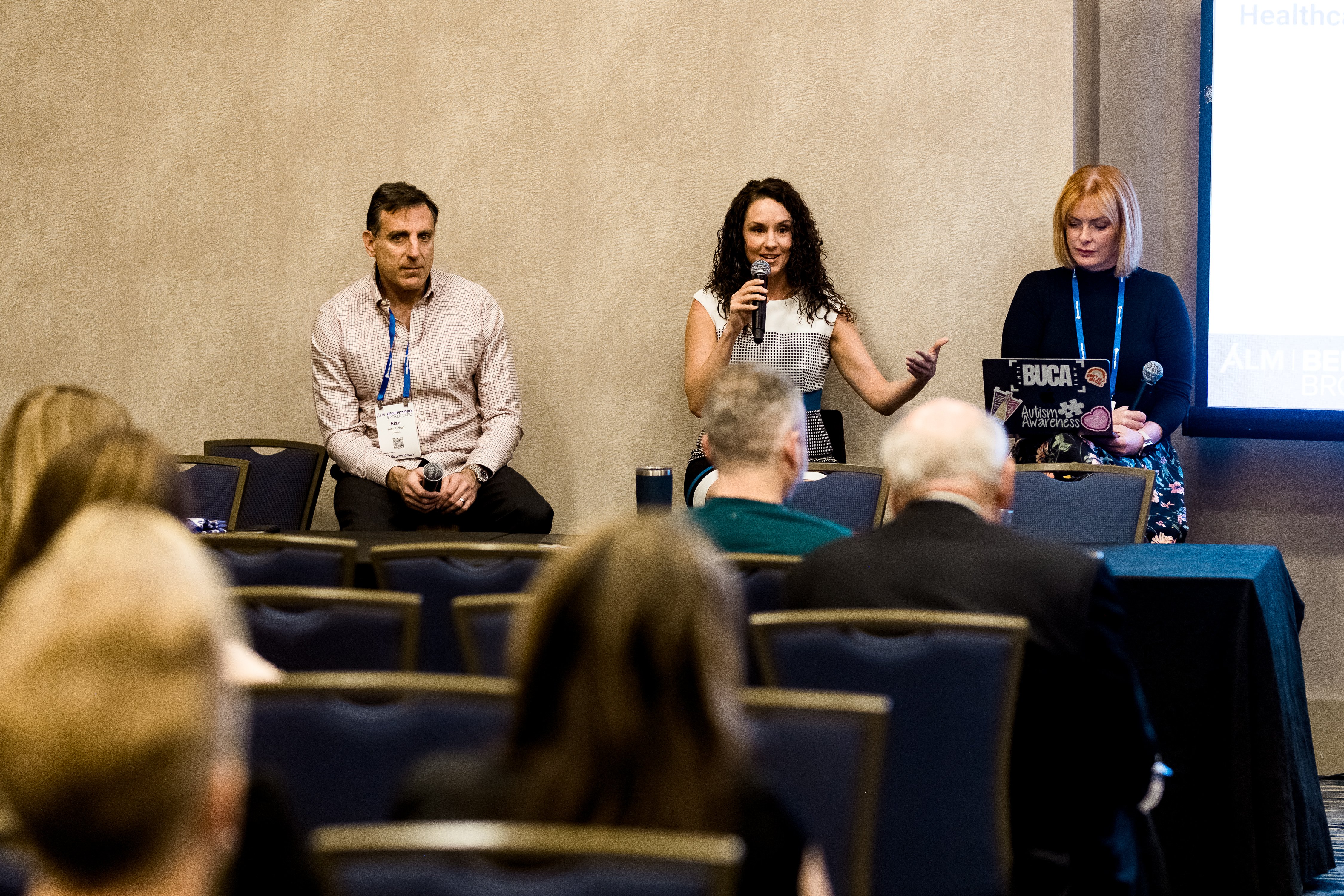 Megan Cook is the founder and CEO of Adept Benefits, which aims to break the cycle of annual cost increases and make sure employers get the value they pay for.
Megan Cook is the founder and CEO of Adept Benefits, which aims to break the cycle of annual cost increases and make sure employers get the value they pay for.
Paul Wilson: How did you get your start in the benefits industry?
I started in health care when I was five. My mom was the director of nursing at a long-term care facility, so I volunteered growing up and absolutely loved it. After college, I was considering going back to school for nursing, but my dad said, “Why don't you use your business degree?” So I put my resume out in the world, got a call from Xerox and was hired for a sales position. I did that for three or four years, but a mentor of mine who worked in the P&C business said, “You love health care and you're good at sales; why don't you look into benefits consulting?” I was hired at a big brokerage as an account executive, and I've been in the industry ever since.
PW: How has your journey so far helped shape your mindset as a broker and business owner?
From a cultural perspective, I've learned that I want to have accountability internally, but also for our clients. Another priority is flexibility. Our employees are not expected to clock in and out at 8 and 5. They know what their responsibilities are, and that may mean you come in after you drop your kids off at school or you leave at 3 to pick them up. Maybe you have a dentist appointment or you want to go to Orangetheory at lunch. That's totally fine. We trust our employees to make good decisions.
Another area I focus on is passion. At some firms, there is a certain way to do things and job descriptions have to fit within boxes. It doesn't allow a lot of room for creativity or for employees to be passionate. We're a small and nimble company and so we give the employees the opportunity to shape what they want from their career.
PW: What are the biggest opportunities for innovative advisors in the space right now?
I think the biggest opportunity is to educate pretty much everyone we come into contact with in the health care space. We don't have to get super granular, but there are three key aspects of health care: efficacy, cost of care and quality. And all three of those elements are broken. So we've been really focused on educating both clients and prospective clients to help them understand what's truly going on. It's pretty overwhelming and clients are completely shocked. The opportunity is around education and spreading the message that there's hope, that health care can be fixed. There are companies that are doing this for their employees; it's not a quick and easy fix, but it's absolutely doable and the outcome is unbelievable.
PW: How receptive are clients to these ideas?
It depends on the industry and how much they've experienced the brokenness of the system. I recently started working with a construction company with about 300 employees. They experienced a 45 percent increase last year, so they spent the time to learn everything we could teach them. Now, we're walking them through the process to achieve better health care at lower costs.
If I walk into a different client, even in the same industry, and their costs have been relatively flat for a few years, it's a different conversation. And quite honestly, I'm finding that if companies are not willing to invest the time and energy to go through this process, then they're probably not the right fit. It's been an adjustment as a salesperson and a business owner.
I recently had two meetings with a prospect, and in my heart, I knew they wanted to stay in their HMO plan. It's not a great plan and the costs are pretty high, but for whatever reason, there's not enough momentum for them to change. So that's just not the right client for us. It needs to be a true partnership.
PW: What are some of the challenges of being a pioneer in this space?
The amount of time we spend on cases like these is probably double what we'd spend on a fully insured plan with a PPO. It takes more time and energy for us to provide all this value. And truly changing a client's health care plan requires a culture change as well as change management internally, which takes more time on their end. If you want to do this right, you have to invest more time.
PW: What are the biggest changes you're watching right now?
I try not to think too big, because it's too much. It's too overwhelming. There are so many players involved in this right now, with the possibility of Medicare for All and so much money being invested in health care. I would be absolutely shocked if our country went to Medicare for All, so I don't see that as a looming threat. What concerns me more is the fact that when I meet with prospective clients, it's the first time they've heard these strategies and ideas. I've been living and breathing this stuff for the past few years and that's a long time for the majority of the brokerage community to not have caught up. That's a little bit shocking.
Many economic advisors predict we're going into a recession soon. So in terms of opportunity, business owners' margins are going to get a lot tighter in the next 18 to 24 months. There's a huge opportunity there. Many economic advisors think we could even be headed for another Great Depression. To me, if health care could be fixed, that could turn the entire ship around. It's such a huge part of the economy. We're on a bad path unless something changes significantly. That's why I feel the pressure to get the message out as much as I possibly can. That feels almost too big, but at the same time, I have a son who's now eight months old and the way things are looking now, he's going to know a very different world than what I've known.
PW: Are you optimistic things can be fixed? It's easy to get discouraged.
To be honest, I think I'm optimistic 50 percent of the time and then the rest of the time, I wonder if it's really possible. The reason I'm optimistic (when I am) is because the opportunities for technology in health care are absolutely endless. If we could get the politics out of health care, which I know is a huge ask, I feel like it could be possible. Every day, I go out and try to educate people in the hopes we can change it. It's an uphill battle; a marathon.
PW: It helps there's a lot more collaboration these days among brokers.
You're 100 percent right. I recently looked up someone on LinkedIn because I knew he'd just implemented a big tech company in downtown Seattle and used some very innovative outside-the-box plan design. So thinking of a tech company I'm currently working with, I wanted to figure out how it worked. We're having lunch next week and he's going to share with me everything he did and how it went. It's quite possible he could co-consult on this prospect with me. We haven't even met in person yet; this all occurred through LinkedIn messaging and he said he'd be happy to help with the case and even gave me his cell number to call with any questions.
PW: What are your favorite things about your job?
I absolutely love the strategy and the dynamics you have to consider when implementing a health care program. It's not just strictly the benefits, it's the recruiting and retention, it's the culture, it's the industry. There are so many facets. I love strategizing and thinking dynamically like that. I also love the execution and seeing the results of the hard work you've poured into a program. I also love my clients; I've worked with a lot of them for eight or 10 years. They've been with me for a very long time and I just adore them. I have seen their kids graduate from college. But my clients stay with me because of the results first and the relationship second. And recently, there's just so much to learn in our industry. It's a really fun time.
PW: What does the word 'disruption' mean to you?
When I think about disruption, I think about the fact that in order to implement many of these new types of programs, there will be some disruption. There are a few programs or vendors you can implement without any disruption, but they're more like Band-Aids or quick fixes, they're not holistic health care programs. In order to implement a program that is consistently going to produce the results you're hoping for, there's going to be disruption. I view it as positive, but change management within any organization is not easy. Clients need to know that or they'll be disappointed.
PW: Finish this sentence: The key to success in this industry going forward is…
Perseverance, endurance and hard work.
Read more from our Face of Change series:
© 2025 ALM Global, LLC, All Rights Reserved. Request academic re-use from www.copyright.com. All other uses, submit a request to [email protected]. For more information visit Asset & Logo Licensing.







